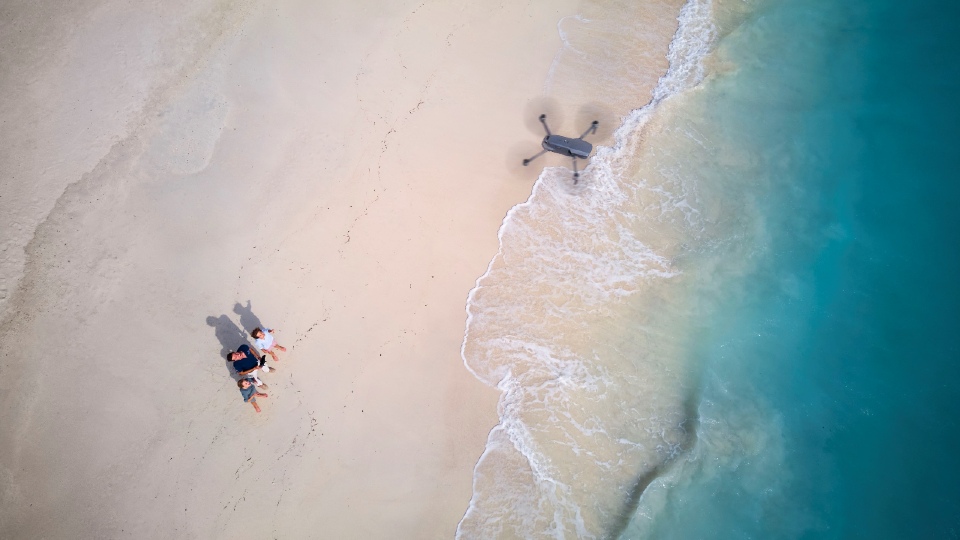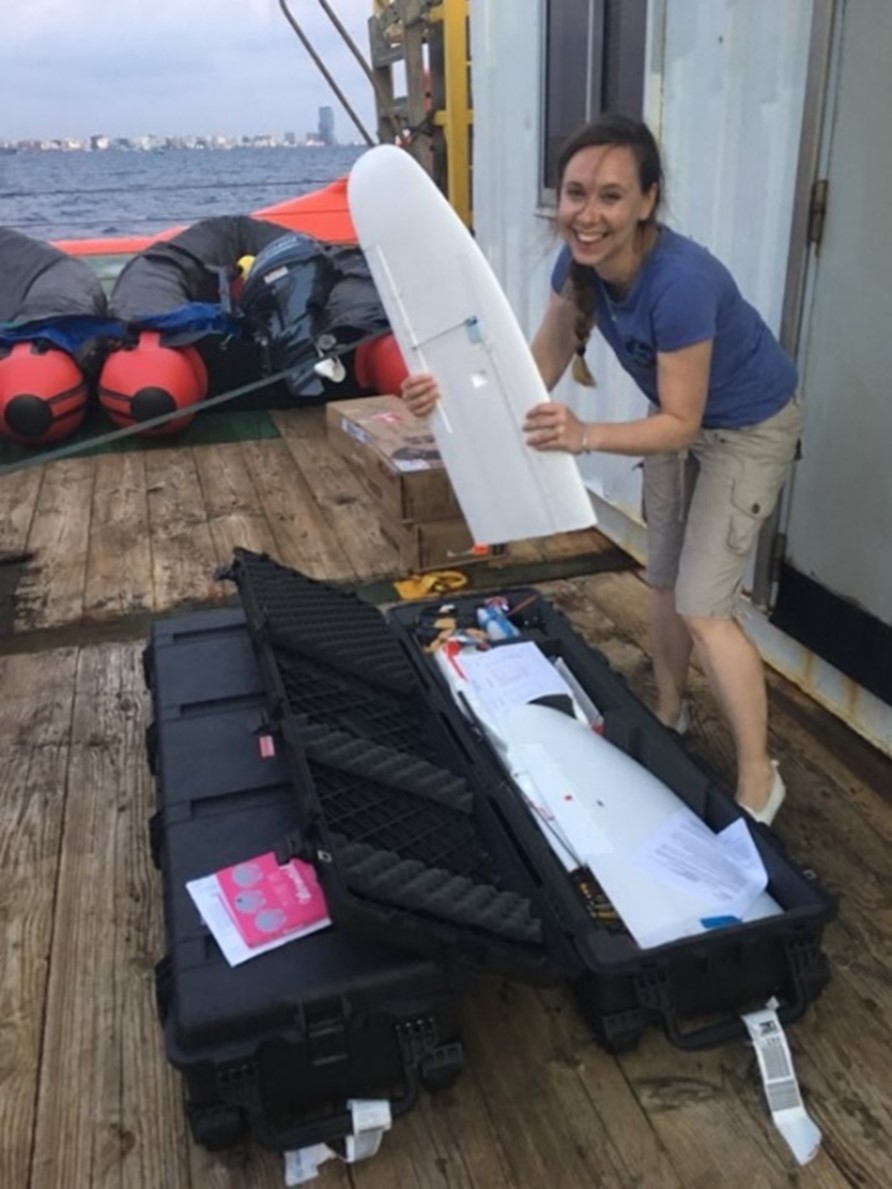Melissa Schiele is working with Oceans Unmanned, the Marine Research and High Education Center, and supported by The Ritz-Carlton Maldives, Fari Islands, to develop a standardised methodology for using drones to detect plastics in the Indian Ocean.
The School of Mechanical, Electrical, and Manufacturing Engineering PhD researcher has collaborated with the team through her work in the region.
Currently, there is no standard technique to capture information on plastic aggregations and reposition rates around the Maldives.
Melissa, whose research is focused on developing drone technology to protect and monitor marine life, will help train local teams to operate new long-endurance, water-landing fixed-wing drones provided by the non-profit organisation Oceans Unmanned.
This data will be analysed and used to build a picture of plastic pollution in the Maldives, which is home to the world’s seventh-largest coral reef system and more than 1,100 species of fish and 180 species of coral.
It is important to understand the rates of marine plastic pollution as large pieces can entangle animals, and small pieces can cause further harm by entering the food chain.
Melissa said: “This collaboration has been a great experience so far. There aren't many people doing what I do, and to have such successful organisations reach out to us, donating kit and their time and expertise, is humbling and exciting.
“I hope this is the start of something which will grow in the Maldives, and potentially beyond.”
Oceans Unmanned founder, Matt Pickett, added: “We’re very excited about this partnership. We’ve been collaborating with Ms. Schiele over the past year on our marine debris initiatives and look forward to expanding the collaboration.
“In addition, we’re big believers in the power of technology to address environmental challenges and marine conservation is an area where we believe our experience can really support local efforts in the Maldives.”
More information on the partnership can be found on the Oceans Unmanned webpage, and more information on Melissa’s research at Loughborough University can be found in her interview with VOLUME magazine.

